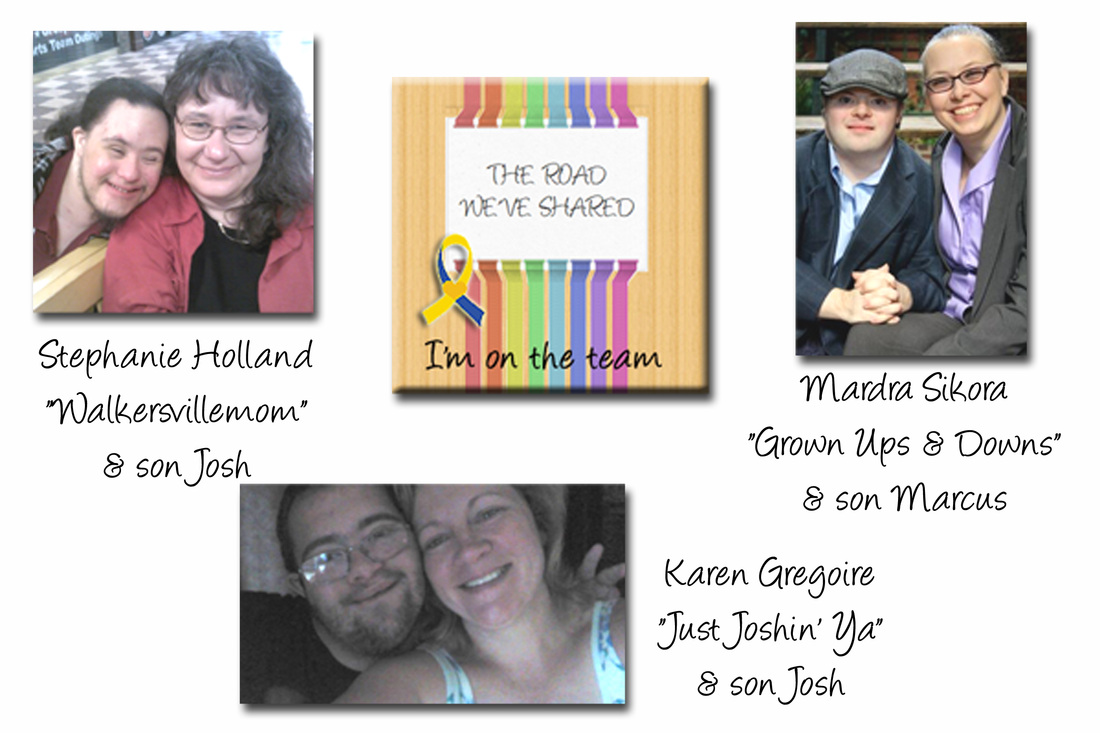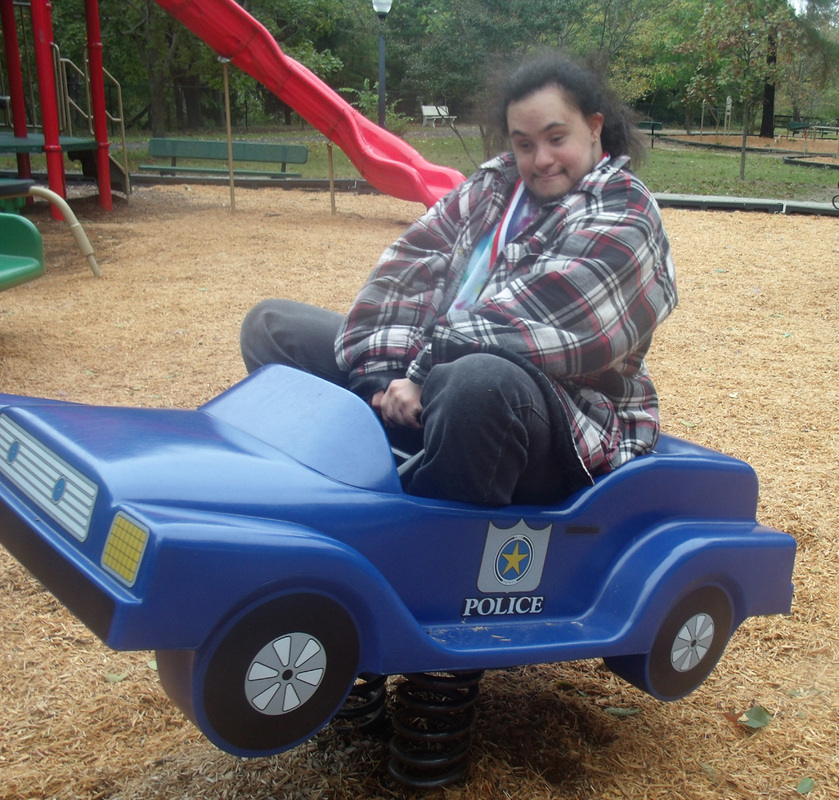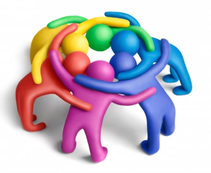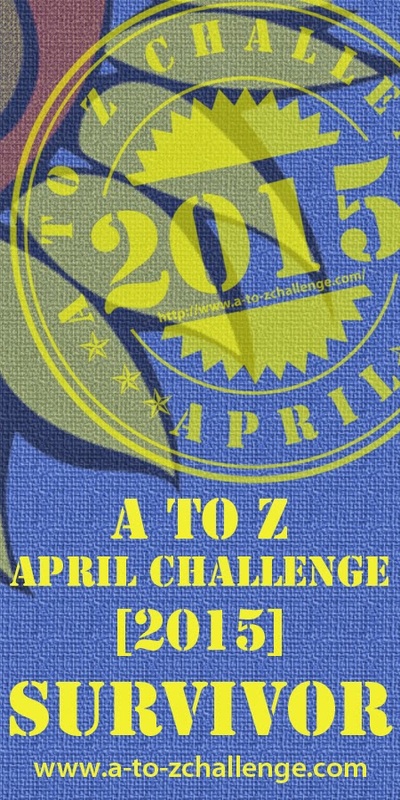ANYWAY - Mardra prepared a fantastic presentation and asked Karen and I specific questions in order to prepare us. One of those was:
Why do you choose to share on-line?
followed by:
Why is it important specifically for advocates and people involved within the DS community to share their stories publicly?
I managed to come up with "bullet point" or "Twitterized" versions of my answers to those questions for the purpose of the session, but I feel like I didn't really explain my perspective in terms of some of the recent controversies swirling around in our community.
Many hats of community building
| If you've been following our blogs here on "The Road" you'll know that we each have a different "voice" - even when we're talking about the same things. Karen is our "Social Ambassador" - she's the super friendly, outgoing one. She is the one everybody wants to be friends with - and the Facebook Queen. Mardra is our "Organized Story Teller" - she's a phenomenal juggler - with lots of projects and she still finds time to keep us on track. She is the real writer of the team and knows the blogging world. She's my voice of reason and has a wicked sense of humor that I can totally relate to! | So what do I add???? Hmmm...... well.... |
The FEEL Good Stories and the Need for Action Stories
Okay - I hear that and understand where it comes from.
But....
In my humble opinion (and this is the GREAT thing about the internet, we can all freely express our own perspective) I think we need to talk about all the aspects of our lived experience. We have to say - "Hey! I have a kid who I'm proud of." "Hey! I was touched when the other kids at my daughter's school voted for her to be prom queen!" "Hey! LOOK! My son made the winning basket in the game and other people cheered!"
Are we expecting it to create immediate change - well no.... But we've been on the other end too. We know what it's like NOT to have those moments. If I want to celebrate with someone else who does get to have them, I will. I'm sorry if you think it's detrimental to "the cause."
I also tend to look at things from the lens of "social history." What I mean by that is this:
For them, it's a completely different view. The ADA has always been there. IDEA has always been there... That may play a big part in why we see the happy, inspirational stories differently. (Maybe not, but it just might make our perspectives a bit different) Another thought I had was about how I look at stories about parents who were pressured into institutionalizing their children as part of our social history. It's not ancient history - it's not even two generations ago. So for those parents, the "feel good" stories are something that they could not have imagined when their child was born. And already we're saying that we need to stop telling them? Change happens slowly, maybe some day we won't feel the need for cute, inspirational stories, but for now, I think, they serve an important need in our society.
Balance
Most importantly with "The Road We've Shared" we've started creating a space where other parents of adults, who share the same "social history" can tell their story. Adults who have Ds are living twice as long as those who came before us (Caucasian adults at least, but that's another series of posts). Our children were born during a unique period in history. We have a completely new narrative to write. What's it like to deal with adult issues and aging? I for one don't want to leave that history to others to write for us - no one perspective can accurately paint a complete picture. Together we can create a rich tapestry of different aspects of the journey. I want to include many voices and perspectives about what it's been like for us so that the next generations can look back and hopefully say -
"Hey! Look what it was like for them! Things sure are different now!"







 RSS Feed
RSS Feed

